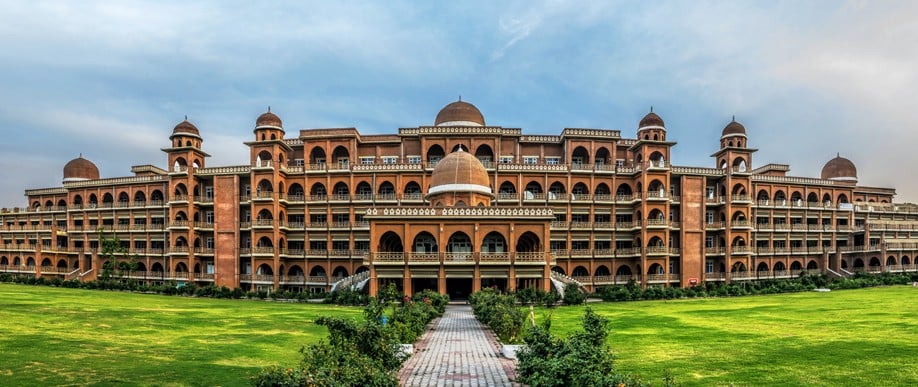
There must be a robust and transparent process for appointments to top positions in universities for better governance

If one has to identify one central problem of university governance in Pakistan, it is in the tier immediately below the head of the institution. The level of vice presidents, vice rectors, deans, etc, is the most confused, and -- dare I say -- clueless part of the Pakistani university governance system. Out of the dozens of universities I know almost everywhere this tier is dysfunctional, and in all those places this factor causes the most problems.
In most universities where some thought is given to the appointment of a vice chancellor, the interest wanes when it comes to the selection of a provost, vice rector, or dean. It is largely left to the vice chancellor, or worse still, the notion of ‘seniority’. So you only have to survive in an institution, and no matter how good or bad you are administratively or research wise, you will eventually get to the top simply by clocking in the hours.
This is a ridiculous system in the least. While a number of people appointed to such positions might be good, it is not a way to determine merit and suitability. A world-class researcher might be terrible at administration, while an average researcher might be great administrator. The task at this tier is to identify the strengths of the faculty and administration and appoint people to positions they are best suited to, both in terms of ability and expertise, and not just because they have hung around for long enough.
In other Pakistani universities where the ‘seniority’ rule isn’t followed, appointments to such high offices are even more arbitrary. In the absence of any rules a person at random is usually appointed. Since that person is a result of favouritism, they remain beholden to the person who appointed them (usually the Vice Chancellor) and never take any initiative. As their tenure is not based on any achievement, or selection process, they remain at the mercy of the appointing authority and exist only to please them. This retards almost every development and initiative in the faculty under their charge.
Therefore, for the selection of provost and deans, there must be a robust and transparent process. In fact, such high positions even merit an international search committee along the lines of the head of institution, as they are also key offices for university development. As collaborators with the head of institution, they are often the highest ranked person a faculty or staff member meets on a regular basis and hence their appropriateness for the job is essential.
Once an appropriate provost or dean has been appointed it should then be their task to develop a plan for their respective domains. There needs to be a clear administrative structure, a written down and disseminated faculty policy (teaching, research, promotions, salary etc), as well as robust student focused teaching and welfare policy. These policies should no be made just by the dean and then imposed but created through a collaborative endeavour including heads of departments, people from specialised administrative departments in the university (for example, there should be an HR person in the faculty promotion and salary committee), and outside experts, so that there is an element of transparency. These policies should then be vetted at the university level so that across disciplines there is no major discrepancy and that the policies are harmonised. Once adopted, these policies should then be emphatically observed.
In the case of Pakistan, it is often seen that either universities do not have these policies or even if they do they are so loose and unclear that everyone gets away with everything. In the worst cases even in the face of policies some people get away with their doing through sheer force, bullying and threats.
It is disregard of these rules and procedures which break the backbone of the university and make it a fish market of sorts, where everything goes. Therefore, care needs to be taken when these policies are being framed so that they are self-enforcing, otherwise they will lose their strength. There also needs to be a mechanism where anyone breaking these rules can be held accountable without repercussions on the person bringing in the charge.
For example, if a dean is breaking rules all the time, a faculty member should be able to take the allegation to an independent board of inquiry with full authority, without the fear of repercussions. They should also be shielded from reprisals by the dean in a statutory manner, where as soon as an allegation is made the dean no longer oversees that particular faculty member in any way, and they are shifted, pending the investigation, to another dean or provost. Such measures are essential if one is to ensure the following of rules and procedures, and the reporting of their breach. Otherwise the rules will just be present and gather dust. A rulebook which is comprehensive, has provision for independent oversight, and has a robust enforcement mechanism is therefore essential for the life of a university.
The appointment of the provost and deans and the formulation and implementation of a self-enforcing rulebook are perhaps the most important elements of university governance. If care is taken with both even the appointment of an unsuitable vice chancellor can be survived, since rules and procedures, and merit based senior appointments, will prevent him or her from making any significant changes arbitrarily.
Therefore, until these twin issues are given concerted attention in Pakistan, universities will never develop as self-governing and self-enforcing institutions with a clear vision of teaching and research.
To be continued